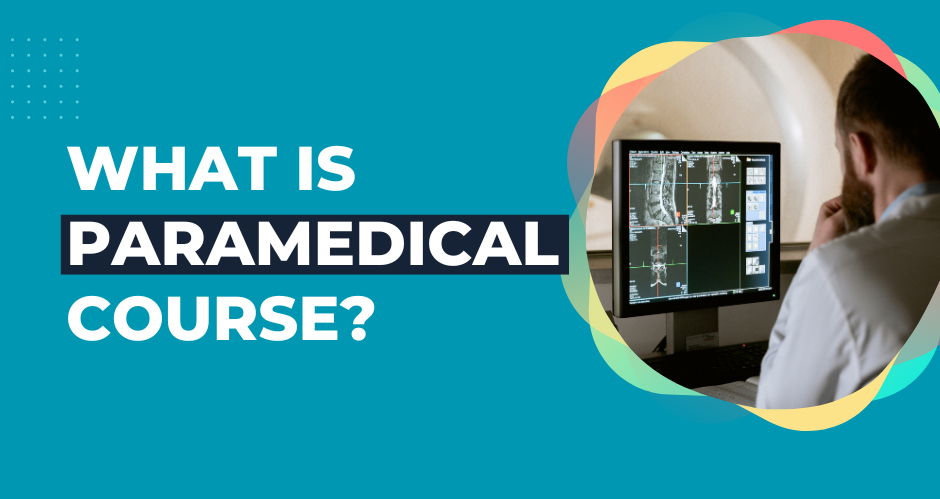
What is Paramedical Course?
Paramedical courses are courses that are designed to train individuals to become allied health professionals who work alongside doctors and nurses in providing healthcare services to patients. These courses are focused on providing hands-on training and practical skills in a variety of medical areas such as emergency medical services, laboratory technology, radiology, physiotherapy, occupational therapy, and medical imaging.
Paramedical courses can provide students with the necessary skills and knowledge to work in a variety of healthcare settings such as hospitals, clinics, laboratories, and rehabilitation centers. The demand for paramedical professionals is increasing due to the growing need for healthcare services and advancements in medical technology.
Benefits of Paramedical Course
There are several benefits to pursuing a paramedical course, including:
- Job opportunities: There is a high demand for paramedical professionals in the healthcare industry. Pursuing a paramedical course can open up a wide range of job opportunities in hospitals, clinics, diagnostic centers, and other healthcare facilities.
- Short duration: Most paramedical courses are of a shorter duration compared to medical courses. This means that students can complete their education and start working in their chosen field much sooner.
- Lower cost: Paramedical courses are generally less expensive than medical courses, making them a more accessible option for students who cannot afford the high cost of medical education.
- Specialization: Paramedical courses offer a wide range of specialization options, allowing students to choose a field that aligns with their interests and career goals.
- Flexibility: Paramedical courses are often offered in both full-time and part-time formats, allowing students to balance their education with work or other commitments.
- Career advancement: Paramedical courses can provide a pathway for career advancement within the healthcare industry. With additional training and experience, paramedical professionals can advance to higher positions and earn higher salaries.
Types of Paramedical Courses
Paramedical courses are generally shorter than traditional medical courses and can be completed within a shorter period of time. These courses are available at various levels such as diploma, bachelor’s, and master’s degree programs.
- Master of Physiotherapy (MPT)
- Master of Occupational Therapy (MOT)
- Master of Science in Medical Laboratory Technology (MSc MLT)
- Master of Science in Radiology and Imaging Technology (MSc RIT)
- Bachelor of Physiotherapy (BPT)
- Bachelor of Occupational Therapy (BOT)
- Bachelor of Science in Medical Laboratory Technology (BSc MLT)
- Bachelor of Science in Radiology and Imaging Technology (BSc RIT)
- Bachelor of Optometry (BOptom)
- Bachelor of Dental Surgery (BDS)
- Diploma in Medical Laboratory Technology (DMLT)
- Diploma in Radiology and Imaging Technology (DRIT)
- Diploma in Ophthalmic Technology
- Diploma in Optometry (DO)
- Diploma in Medical Records Technology (DMRT)
- Diploma in Anesthesia Technology
- Diploma in Emergency Medical Services (DEMS)
- Diploma in X-Ray Technology
- Certificate in ECG Technology
- Certificate in Phlebotomy
- Certificate in Dialysis Technology
Paramedical Job Profile Scope
- Medical Laboratory Technologist: A medical laboratory technologist is responsible for performing various laboratory tests to diagnose diseases and monitor treatment outcomes. They work in medical laboratories, diagnostic centers, and hospitals. With advancements in medical technology, the scope for medical laboratory technologists is increasing rapidly.
- Physiotherapist: A physiotherapist is a healthcare professional who helps patients to recover from injuries, disabilities, or illnesses through physical exercises and therapies. They work in hospitals, rehabilitation centers, sports teams, and fitness centers. With the increasing demand for non-invasive treatments, the scope for physiotherapists is also growing.
- Occupational Therapist: An occupational therapist is responsible for helping patients with physical, mental, and emotional disabilities to improve their quality of life through various therapies and interventions. They work in hospitals, rehabilitation centers, schools, and community health centers. The scope for occupational therapists is also expanding with the growing need for rehabilitation services.
- Nurse: Nurses are responsible for providing primary care to patients and assist doctors in medical procedures. They work in hospitals, nursing homes, clinics, and community health centers. With the growing need for healthcare services, the demand for nurses is also increasing.
- Medical Imaging Technologist: A medical imaging technologist is responsible for performing various diagnostic imaging tests like X-ray, CT scan, MRI, etc. They work in diagnostic centers, hospitals, and research centers. With the advancements in medical technology, the scope for medical imaging technologists is also increasing.

